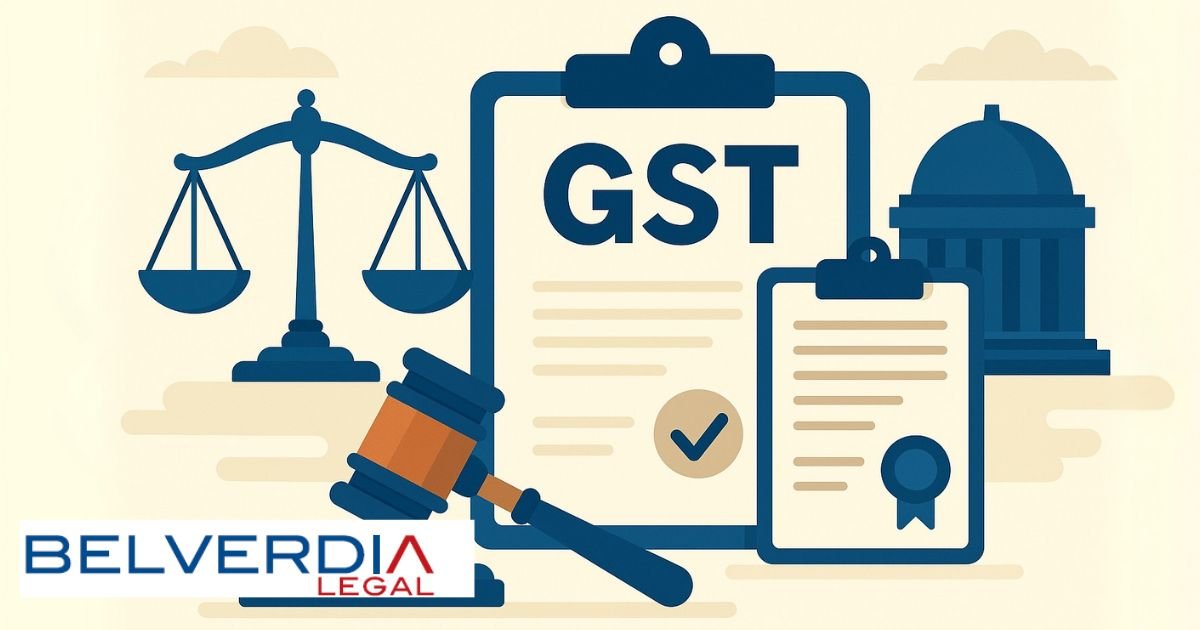Since the introduction of the Goods and Services Tax (GST) in 2017, India has witnessed a transformative shift in its taxation framework. While the system has aimed to simplify compliance and unify indirect taxes across states, it has also led to a complex and evolving legal environment. For businesses operating in this terrain, GST disputes have become a frequent challenge, often requiring appellate intervention and sophisticated legal handling.
When Compliance Leads to Conflict: Common Dispute Scenarios
GST disputes arise when there is divergence between taxpayer interpretations and the department’s assessment. Some of the most common triggers include:
- Input Tax Credit (ITC) mismatches and disallowances due to supplier non-compliance
- Classification controversies, particularly for composite and mixed supplies
- Valuation issues tied to discounts, related party transactions, or bundled services
- Ambiguities in the place of supply, which affect tax jurisdiction and liability
- Delays and denials of refunds, notably for exporters and businesses under inverted duty structures
These disputes are not only technical but can significantly impact the financial and operational planning of businesses, especially in industries with complex supply chains.
The Appellate Path: Navigating Legal Remedies
Disputes under the GST regime follow a structured appellate process. Taxpayers may first appeal to the Appellate Authority, and from there, escalate to the Goods and Services Tax Appellate Tribunal (GSTAT)—expected to become fully functional soon. In the absence of a tribunal, many matters are currently adjudicated by High Courts, which have actively shaped GST jurisprudence through writ petitions and interim relief.
For high-value or interpretative matters, further escalation to the Supreme Court of India remains an available remedy, especially where constitutional principles or substantial questions of law are involved.
The layered structure ensures access to justice but also calls for precise and technically grounded legal advocacy at each stage.
The Role of Legal Representation in Achieving Resolution
Effective appellate representation under GST demands more than tax compliance knowledge—it calls for legal foresight, sectoral understanding, and strategic argumentation. Businesses increasingly seek counsel experienced in both litigation and policy interpretation to present their cases before appellate authorities.
Firms like Belverdia Legal, known in professional circles for their structured approach to tax litigation, are often consulted by businesses navigating these waters. While ethical standards prevent overt advertising, the value of capable legal stewardship—especially in appellate and tribunal matters—often becomes evident through informed client engagement and results.
Proactive Measures That Help Prevent Litigation
In an evolving tax regime, legal preparedness can be a powerful shield. Companies are adopting proactive strategies to minimize the risk of litigation, including:
- Advance Rulings: Seeking clarity on ambiguous GST provisions before undertaking transactions
- Internal Tax Audits: Identifying gaps or inconsistencies before they attract scrutiny
- Compliance Training: Educating finance and tax teams on the latest rules and judicial interpretations
- Timely Legal Consultation: Obtaining expert opinions when entering new sectors or contractual arrangements
These steps not only reduce exposure to future disputes but also place businesses in a stronger position if they are required to defend their stance.
Ensuring Legal Clarity in a Changing Tax Environment
As GST law continues to evolve, the ability to adapt and respond effectively to its challenges is critical. Businesses facing tax assessments or appellate proceedings benefit greatly from legal advisors who offer not only representation but insight into the broader regulatory and judicial context.
In a landscape where interpretation can often outweigh intention, the role of the legal advisor becomes integral—not merely during disputes but as part of an ongoing compliance and governance strategy.

